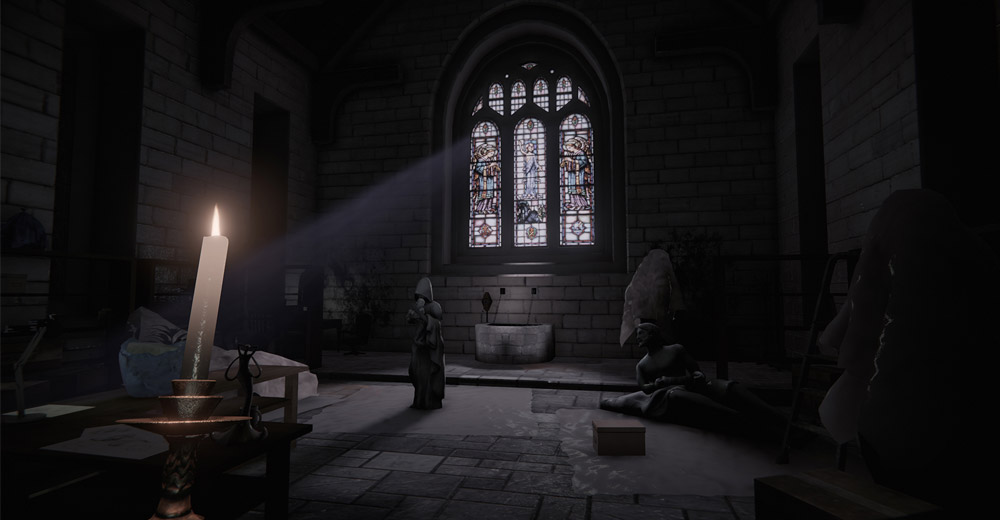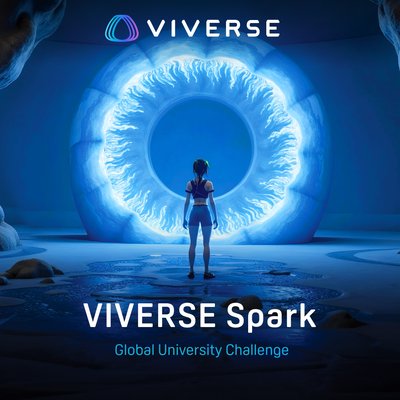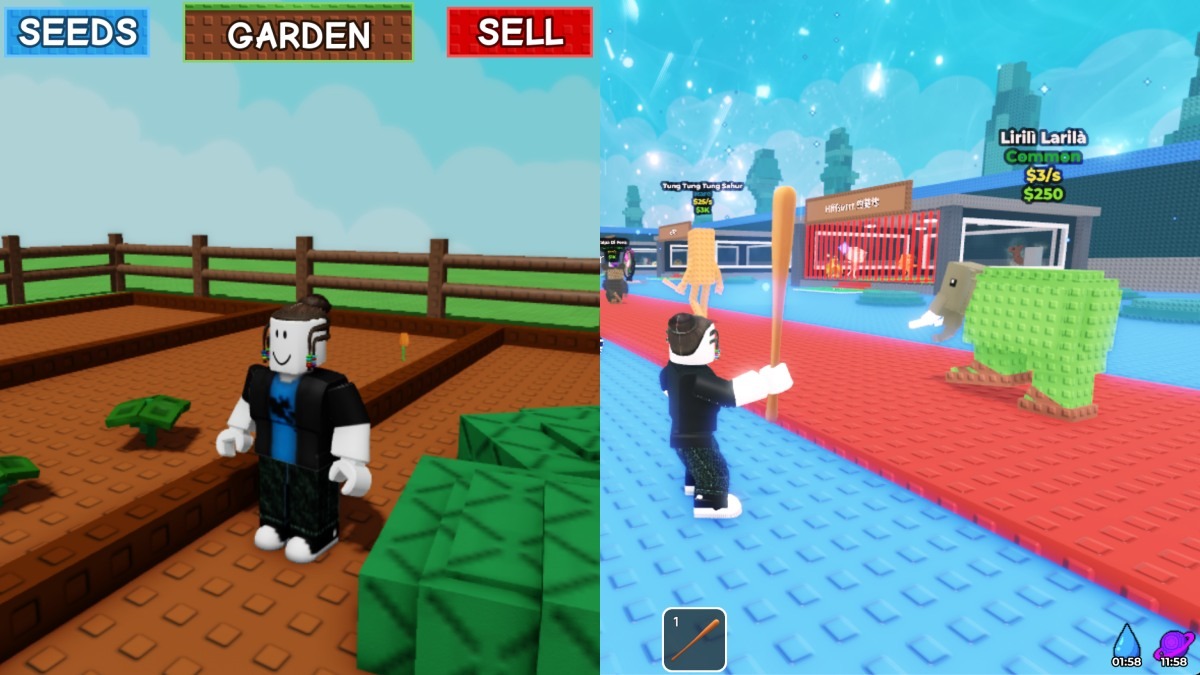“One knock to wake her from her bed, twice to raise her from the dead.”
Based on the 2016 movie, Don’t Knock Twice takes you through a unique interactive experience that goes beyond the screen. We knocked on the door of developer Wales Interactive to learn more about this horror title.
Hello there! First tell us who you are, and what you do at Wales Interactive.
Hello! My name is Ben Tester, Marketing Manager at Wales Interactive. It’s always a bit of a vague title but I have the pleasure of shouting about our games, creating fancy promotional material and attending events to show off what we do. I also act as the bridge between the community and the development team. Joining me is Richard Pring, Co-Founder and Technical Director at Wales Interactive, who will be going into a little more detail about the VR development for Don’t Knock Twice.
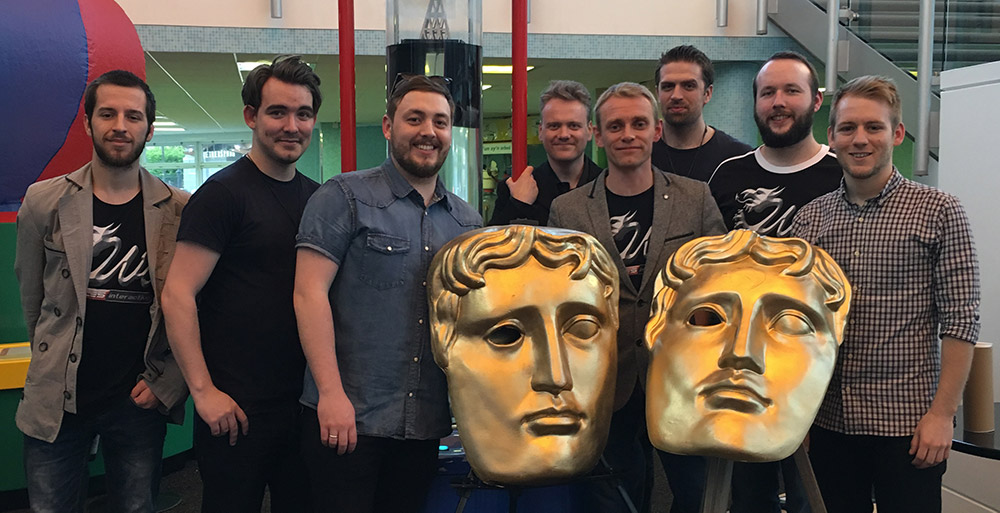
The Wales Interactive team.
Tell us a bit about how Wales Interactive came to be. What was your original hope, your mission statement perhaps, when setting up the company?
We are a multi-award winning video games developer and publisher based in Wales, UK. The studio was founded by David Banner and Richard Pring back in 2012.
It’s funny to think about, considering the first office was in the attic room of David’s house in the Welsh Valleys – but we now have a state of the art games studio with a team of 10 games industry professionals.
The original motivations were to create a significant games industry presence in Wales and to tap into the local graduate talent pool that we knew that existed in the area. We not only planned to put Wales on the video games development map but create sustainable highly skilled jobs in the games sector which at that time did not exist in this part of the UK. We’ve already achieved those goals and our studio has gone from strength to strength, continuing to develop and publish cutting edge gaming titles that entertain the world.
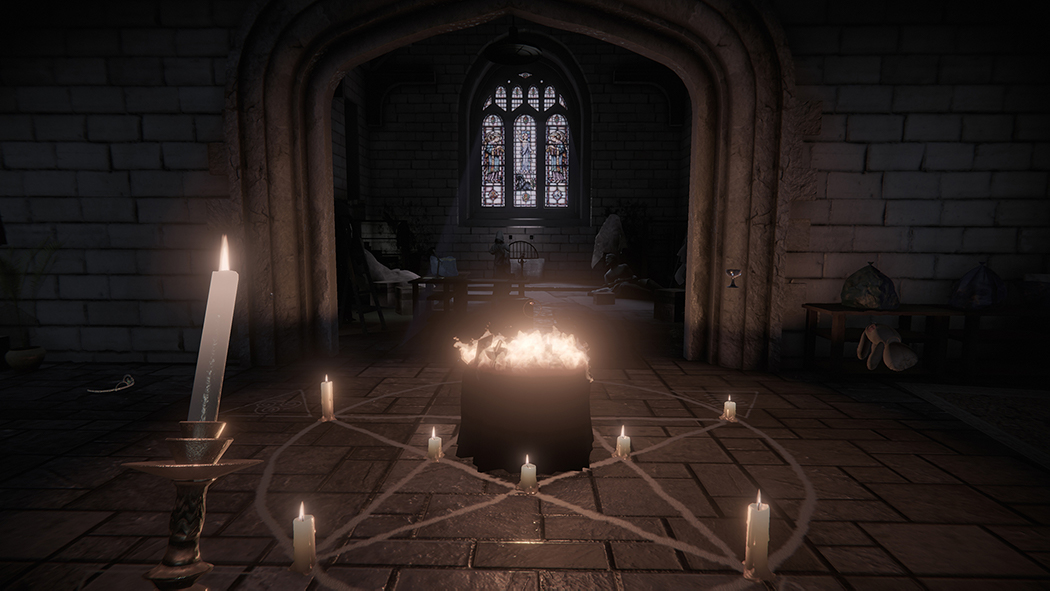
Was there any specific reason that the studio started developing for VR? How has developing in VR differed from other digital entertainment?
Our desire to develop for VR came from our ethos of daring to be different — back in early 2014 there was little VR content around and we wanted to be at the forefront of the market by creating immersive, first-person games that were more than just a short experience or tech demo.
Like many others, we had no idea if VR gaming was going to take off, but if we hadn’t have taken the risks during the infancy of VR development, we may not have pulled off something as ambitious as Don’t Knock Twice.
Along with mobile titles and your publishing initiatives, Wales Interactive has a background in crafting interactive narratives. Tell us about the team’s philosophy on digital storytelling, and what role it might play in the future of VR.
As game developers, we believe there are far superior ways of depicting a story than just watching it unfold one scene after another. Books, games and even films can all be enhanced with alternative narrative techniques that engages the user in a way they’ve never experienced before. The Blair Witch Project was widely criticized because it pretty much only relied on building suspense through its setting and, for some, this passive experience didn’t quite hit the spot. In Don’t Knock Twice, our core narrative technique was using the environment to tell the story and in turn, this scared the hell out of people!
Don’t Knock Twice is an intense and immersive horror experience, drawing on the same concepts and urban legend touched upon in the atmospheric film. What it was like developing it alongside the filmmakers, and how long did the experience take to develop?
Developing alongside the film was a pretty surreal experience because it’s not all that common to see the two industries come together. It was very different to how we would normally approach a game as there was already a story to work from, but we didn’t want to just mimic the film entirely. We were lucky enough to have the creative license to tell the story the way we wanted it to be told. The advantages of this is that you could get a different perspective from watching the film and playing the game, and you could do it in any order which adds to the entire experience.
We developed and published the title on a total of 3 VR platforms and 4 non-VR platforms, which took around 14 months.
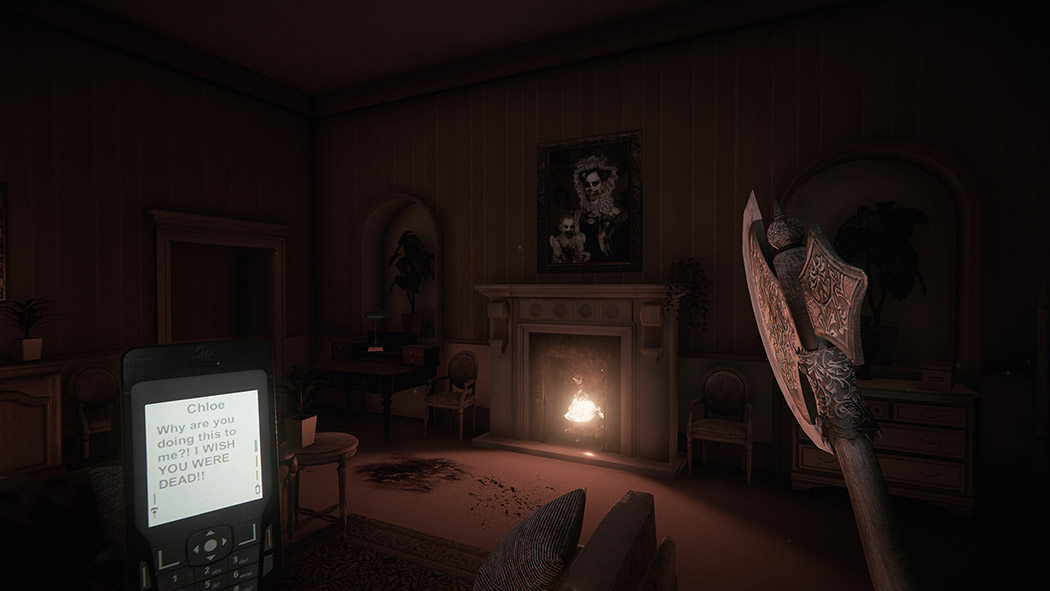
What development tools did your team use to create Don’t Knock Twice?
We used Unity as our engine, with other supplementary products plugging into it for art, audio etc.
With a relatively small headcount at the studio, how many worked on Don’t Knock Twice? Were there specific development requirements for VR that you had to deal with?
Alongside other projects, we had our full team of 10 working on Don’t Knock Twice at one point or another.
The entire game takes place in a manor house and it took a lot of man hours to realize a full house and make it feel alive. This is more challenging than normal because, with it being developed for VR, you can’t have any of the usual shortcuts or development tricks than you can get away with in a non-VR game. Almost every object in the game can be picked up and inspected up-close, so extra time was put into the making of the environmental pieces.
Were there any specific challenges you encountered during development?
Oh yes! I could reveal them all but we’d be here for a very long time.
Despite the VR implementation being the primary focus for this game, we also were developing the non-VR version so from a design point of view it was extremely difficult to perfect the in-game animation sequences and jump scare moments—we found that what worked for one version didn’t necessarily work as well for the other.
With that said, frame rate was our biggest issue. Trying to get a mix of high fidelity graphics with smooth gameplay for VR was not an easy task, especially when you had so many objects in the game that could be picked up and thrown about. In the end, we had to develop quite a few custom systems underneath the game to handle physics and rendering to make this as smooth as possible.
How did the lessons learned during the production of Don’t Knock Twice help with VR projects going forward, such as Time Carnage?
Over the time we learnt many, many things that we should never do again, and some we really should repeat! Without a doubt our biggest lesson was optimization! VR development has many parallels to normal game development, but keeping the frame rate smooth cannot be stressed enough. We are happy to say that both Don’t Knock Twice and Time Carnage have been received very well in this regard.
What’s on the horizon for Wales Interactive? Can we look forward to more exciting and immersive VR experiences from your team in the future?
Absolutely, we have many more ideas in the VR pipeline but they’re in very early stages right now. What we can say is that any fans of Don’t Knock Twice will be super excited to see what we have planned for the future. For 2018, we have a number of third-party titles set to release including The Shapeshifting Detective, an FMV murder mystery game by the creators of The Infectious Madness of Doctor Dekker. Anyone wanting to follow our development or keep up with our news should find us on Twitter or head over to our website. Thank you all for reading!!
And thank you for talking to us!
Don’t Knock Twice and Time Carnage are available on Viveport and as part of Viveport Subscription.
